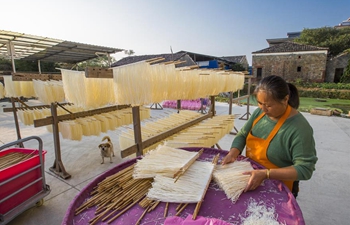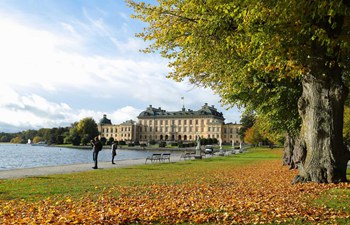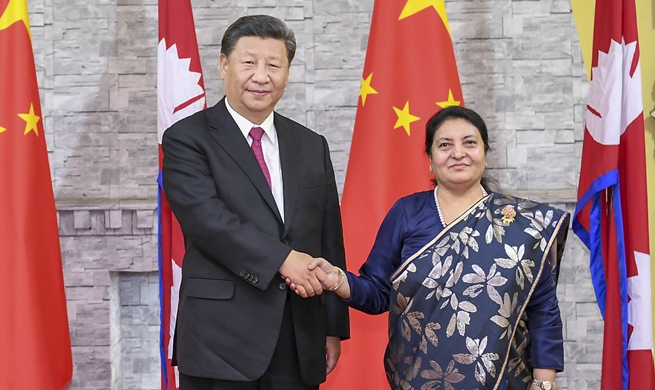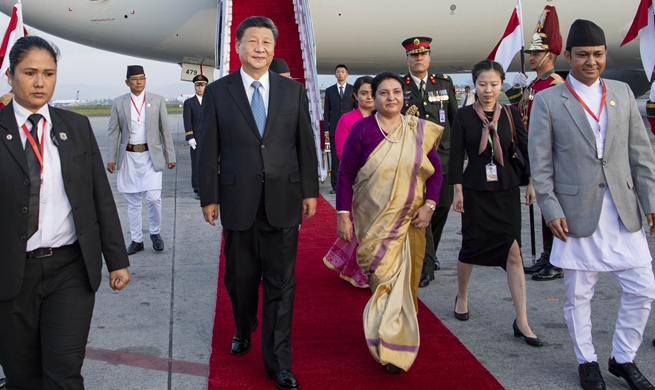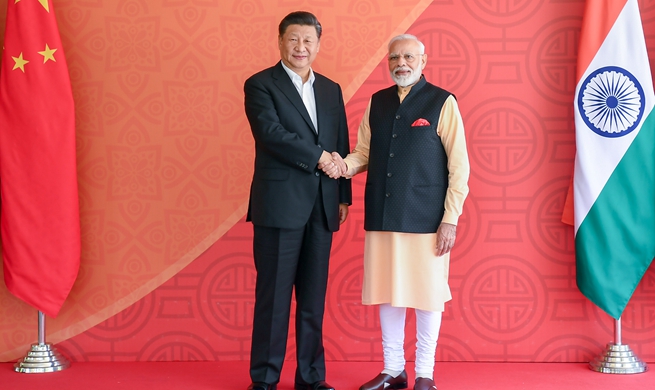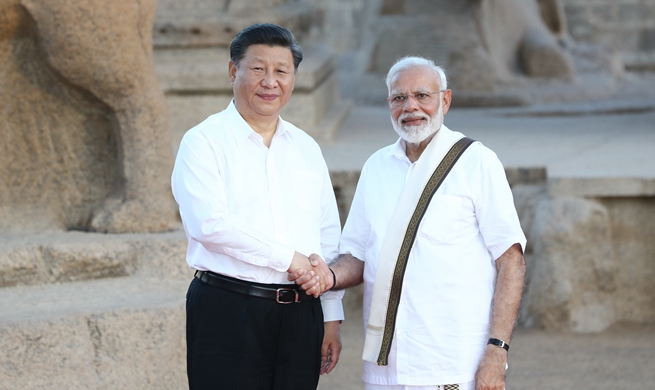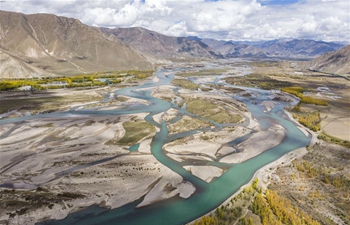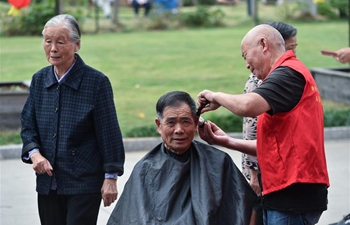by Burak Akinci
ANKARA, Oct. 12 (Xinhua) -- Mey al-Hafez speaks Turkish fluently but it was not like this when she came six years ago to Ankara, Turkey from her home town of Rakka in Syria, fleeing the civil war in her country. Now she aspires to go to law school and be a spokeswoman for her community.
"When I first went to school, I was bullied by my schoolmates. They treated me badly but when I started to learn Turkish and interact with them, it stopped," explained the 17-year-old Mey to Xinhua with a big smile on her face.
Mey is lucky because her parents support her ambitions, however, thousands of other Syrian girls in Turkey are not going to schools, either because they have been forced into marriage or because they are working illegally to support their families.
Another fortunate girl is 15-year-old Roua Mohammad. She came to Turkey last year with her mother and five siblings, while his father is working in Saudi Arabia to feed the family.
Her home city of Aleppo, a historic and merchant town located around 90 km away from the Turkish border, has been largely destroyed in fierce fighting between government and rebel forces, forcing the Mohammads to try to survive elsewhere.
"I am learning Turkish in my school and I think I will be able to speak shortly, I am happy considering that we had nowhere to go. The sole fact that we don't hear the bombings makes us happy," she said in English, the language that her teacher mother taught her back home.
Since 2012, October 11 of every year has been celebrated as the International Day of the Girl, a day aiming to highlight and address the needs and challenges girls face across the world, which also calls for girls' empowerment.
Marking the day, Metin Corabatir, head of the Research Center on Asylum and Migration (IGAM), pointed out that the schooling rate of Syrian refugee girls in Turkey plummets dramatically from primary to secondary education.
"From around 95 percent in primary education, the rate decreases to around 25 percent in high schooling because of trauma and economic reasons, but especially because parents want their girls to get married for cultural traditions or simply don't want to send them to schools to protect them from the outside world," he explained.
Turkish laws forbid marriage for minors younger than 17, thus cases of early marriages are not officially registered but cases of child pregnancies still make headlines.
A veteran refugee expert, Corabatir also insisted that Turkey's capacities for providing education for these young refugees are now limited as it is now struck by economic woes.
The economic downturn also caused a rise in anti-Syrian prejudice and sentiment in Turkey.
Seeking to address growing hostility towards Syrians, Turkey's Education Ministry recently distributed a new textbook to school children with a section on refugees that encourages them to empathize with classmates from other backgrounds.
Turkey is currently home to the largest number of migrants with 3.6 million Syrians and some 400,000 Iraqis. Around 1.7 million are children who need special care and education.
IGAM is also involved in a project that aims to break barriers preventing girls from getting access to secondary education around the world. Mey and Roua are two of the girls that have benefited from the project.
Dozens of Syrian girls have been able to receive secondary education in Turkey thanks to the global initiative since 2018. Nevertheless, according to the United Nations Development Program (UNDP) figures, 400,000 refugee children are deprived of education in Turkey, a grim figure despite state and NGO efforts.
"I want to be someone in life, I want to go to law school, become a lawyer and be ultimately a spokesperson for my community who needs people like me who know both the Syrian and the Turkish cultures," Mey indicated.
Her mother intervened and insisted that Mey "will not get married like I did at the age of 16 because of the wish of my parents."
"And I don't want her to work either, because it would affect her studies," she added while Roua's mum agreed and said that her daughter will not be forced to get married either.
"Since we came to Turkey, many have proposed to marry my daughter but she will not get married until she graduates from university," she insisted, defying Syrian social norms.
Both mothers added that they were not planning to return to Syria anytime soon as the education for their children in Turkey is far better than their homeland crippled by years of war.







